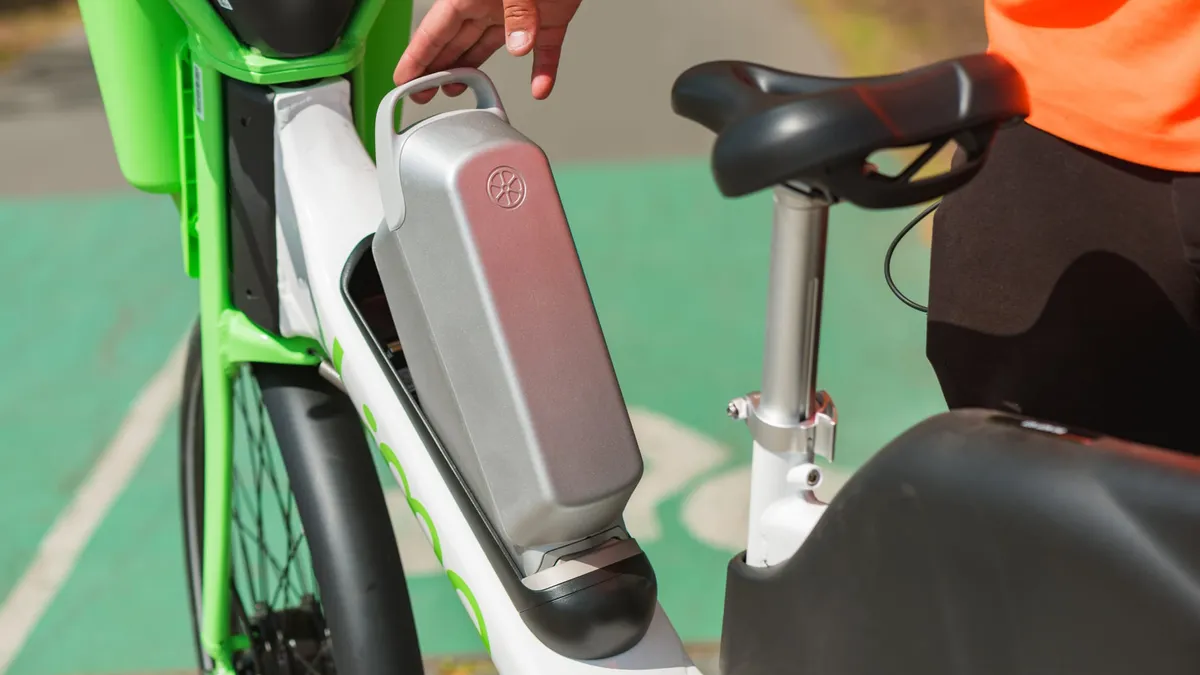The federal government is calling for a 50% reduction in food waste by 2030 while promoting proper food waste disposal — a tall order considering that the average American household of four throws away about $120 of food every month.
This scenario, coupled with evolving mandates to turn trash to resources, brings opportunity to those in waste management — specifically in the area of composting, a practice more trash collectors are adding to their platform. Municipalities in 200 U.S. communities across 18 states had curbside composting in a 2012 BioCycle’s survey and more of them continue to come on line.
Composting helps to generate industry programs and jobs, and also plays a role in storm water management and erosion control, all while supporting food growers. But this food waste elimination model is not an immediate cash cow; there are startup investments and plenty of ongoing expenses. Then there's one big, overarching challenge: teaching and motivating consumers to change their habits.
Compost pioneers
San Francisco has been composting since the 1990s and mandated the practice among residents and businesses in 2009. In 2015, Seattle became the second large U.S. city to require curbside composting as it reaches for a 60% landfill diversion goal before the end of 2016.
Now Minneapolis residents in single-family homes, duplexes, triplexes, and four-plexes must source separate food scraps, soiled paper and other compostable items where service is available. The policy was adopted following a 2013 Waste Characterization Study that found compostable organics comprise most — nearly 40% — of what Minneapolis residents toss. The city is now working toward a recycling and composting goal of 80% by 2030.
The city’s Public Works department and contractor Minneapolis Refuse Inc. have jointly provided organics recycling collection to 106,670 city households since the program’s launch earlier in 2015. Specialized Environmental Technologies processes the waste, which participants bag in certified compostable paper or plastic bags, secure inside compostable containers, or wrap in newspaper.
There’s been a big focus on getting customers on board, said David A. Herberholz, director of Minneapolis’ Division of Solid Waste and Recycling.
"Communications and community engagement must be established well before the program starts and needs to be ongoing. Also not all customers will respond to the same method," he said, suggesting that municipalities and collectors considering composting use a multi-prong approach.
In Minneapolis, the roll out cost for the program was $4,249,510, and ongoing operating expenses in 2016 will be about $3,451,164.
American Disposal working with municipalities to take wasted food problems off of plates
American Disposal will provide Arlington, VA with curbside compost pickup in the next few years, as nearby Manassas City has also expressed interest in a similar service, according to American Disposal Services General Manager Kevin Edwards.
The company could be in the right place at the right time, as Virginia has formed a US Composting Council of compost manufacturers, municipal managers, organics collectors, among allies, to educate state regulators and the public about compost manufacturing.
And just miles away, Prince George's County, MD is looking to turn its food composting operation into another of the earliest large scale, government-run source separation compost programs. Other cities like Boston have launched, or are considering, similar programs.
How Western Disposal is building a business through composting
Colorado-based Western Disposal offers residential curbside organics collections to four communities around Boulder, CO, as well as commercial collection in six Colorado towns. The waste management company has found success through flexibility, as well as customizing service for each contract.
Residential contracts are subscription based, or under municipal contract. In Boulder, residents chose from three container sizes and where the government provides service they are subject to a pay-as-you-throw (PAYT) ordinance to incentivize diversion with price inversely related to the trash generated. Commercial customers can subscribe to cart as well as container service, at a frequency that works for their business.
Due to continual education, contamination tends to stay within tolerances, said Western Disposal Sales and Marketing Coordinator Kathy Carroll. The real challenge is cost.
"Colorado's landfill tipping fees are relatively low, so when economics are the only consideration, sending material to the landfill is the most economical path. The cost of composting is simply not competitive with material burial in our area," said Carroll.
"It has been our experience that, absent policy intervention, (e.g. trash tax, subsidies ... or zero waste ordinances, etc.), subscription rates are low."
Their largest compost collection market is in Boulder, which has a residential PAYT policy. Beginning June 2016, a Universal Zero Waste ordinance will require businesses and multi-family dwellings to offer composting, and for those businesses to subscribe to compost collection.
With more municipalities adopting similar requirements, the time may be ripe for food recovery operations.




















